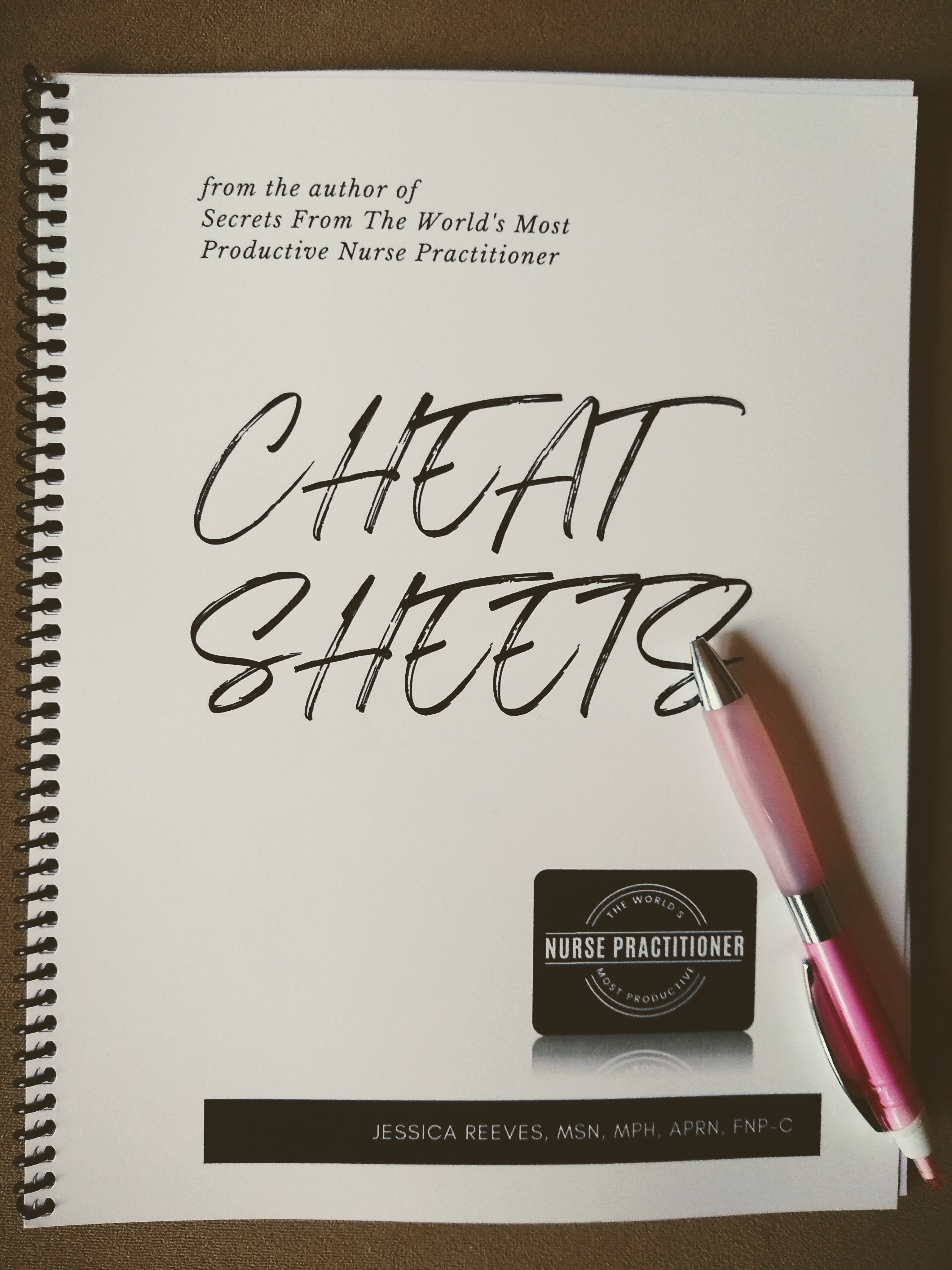Cheat Sheets - a clinical documentation workbook
Attention nursing students, nurse practitioner students, physician assistant students, med students, new grads of any type or anyone who wants a faster way to chart. . .
.
Announcing the only cheat sheets that are completely appropriate to use! These are the very cheat sheets that I started using while I was in clinical rotations in Nurse Practitioner school and which I continued to use for my first year of practice.
.
Eight Reasons Why I Love These Cheat Sheets:
.
1. They gave me the confidence that I needed when talking with patients – I didn’t need to worry that I might forget to ask an important question, all of the most important things for each body system were right there in front of me.
.
2. They gave me the confidence that I needed when speaking with my preceptor – I didn’t need to worry about forgetting something when giving report on a patient. Everything that I asked the patient, everything that I assessed about the patient, every pertinent part of the patient’s history: it was all right there on the page, at a glance.
.
3. They made charting a snap. In NP school, we had to chart everything twice: once in the patient’s actual chart, and again in our school’s charting system. Having these sheets made that easy peasy lemon squeezy. If I needed to click on/off pertinent positives and negatives, I had everything I needed. If I needed to write a narrative description, I had everything I needed (and the contents from each body system served as a template for what I needed to write, so I didn’t have to worry about leaving anything out).
.
4. They helped me to track my time. I wrote my time in/out of the room with the patient in the corner, and the time in/out of the chart next to it. I was able to get a sense of how long certain visits took me to do, how long it took to chart. This was HUGE when it came to practicing on my own (and I kept track of my time for a while as a new grad until I had a good sense of how long things took and was running on time most of the time).
.
5. Spiral bound! So easy to bring into the exam room, easy to refer back to when charting or needing to refer back to anything.
.
6. The 8.5” x 11” is the same size as a standard sheet of paper. You won’t get a hand cramp trying to use a small sheet. And there are 100 pages!
.
7. Free text area. If you haven’t started clinicals yet, you may not realize: there will always be some wild card aspect to 99% of visits. Either a symptom from way out in left field, a piece of history that no one saw coming, or some atypical treatment approach (like, maybe the patient put llama milk on their foot rash and it got worse; I don’t know, you get the idea). Jot that down in the free text area on the side.
.
8. Fodder for smart phrases. Or dotphrases. Or whatever your EMR calls them. When you begin practicing on your own, you’ll want charting shortcuts – and these cheat sheets will help with that. You can use the content of each body system listed to start creating your smartphrases – much faster than starting from scratch. And once you go through the whole book, you can flip back through and see which things you are seeing the most often; maybe you actually document a lot of cardiac stuff, and didn’t realize until you looked back through this.
.
This makes a great gift – for yourself, your school bestie/battle buddy, your favorite student, or a new grad. You will use these not only during your clinical rotations, but also once you start practicing – to help not only with the visits, but with charting, and even time management. Who knows, maybe you’ll even find ANOTHER innovative way to use them. But trust me, you WILL use them – and once you start, you’ll wonder how you ever made it without them.
FREE SHIPPING
.png)
